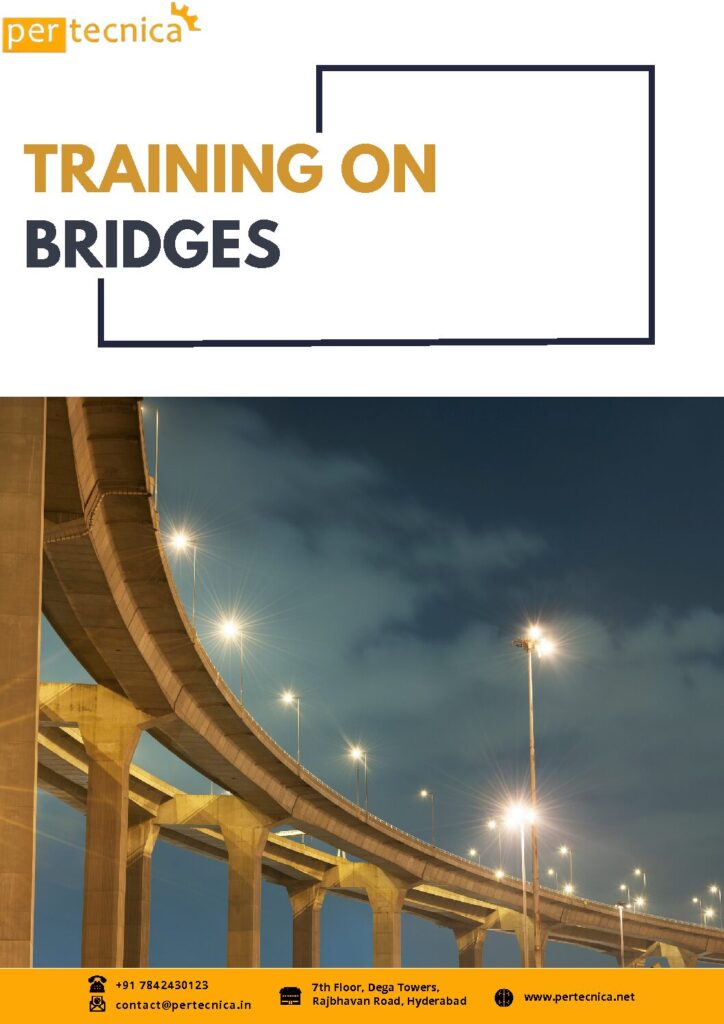Pertecnica Engineering proudly stands as the premier Corporate Training Institute, excelling in providing expert training to engineering staff specializing in Bridge Design, Construction, and Maintenance. Our commitment to excellence is woven into our uniquely tailored training modules, specifically crafted to meet the dynamic demands of professionals in the field. Covering a spectrum from safety protocols to innovative design techniques and sustainable maintenance practices, our training programs are meticulously designed to empower engineering staff with comprehensive knowledge and hands-on skills.
What sets Pertecnica apart is our unwavering dedication to pioneering training methodologies, ensuring participants not only grasp theoretical concepts but also acquire practical expertise essential for success in the specialized realm of bridge engineering. With a focus on simplicity, industry relevance, and innovation, Pertecnica Engineering offers an unparalleled training experience, setting new benchmarks in corporate training for bridge design, construction, and maintenance. Choose Pertecnica for transformative learning that equips engineering staff with the expertise needed to excel in the challenging and evolving field of bridge engineering

